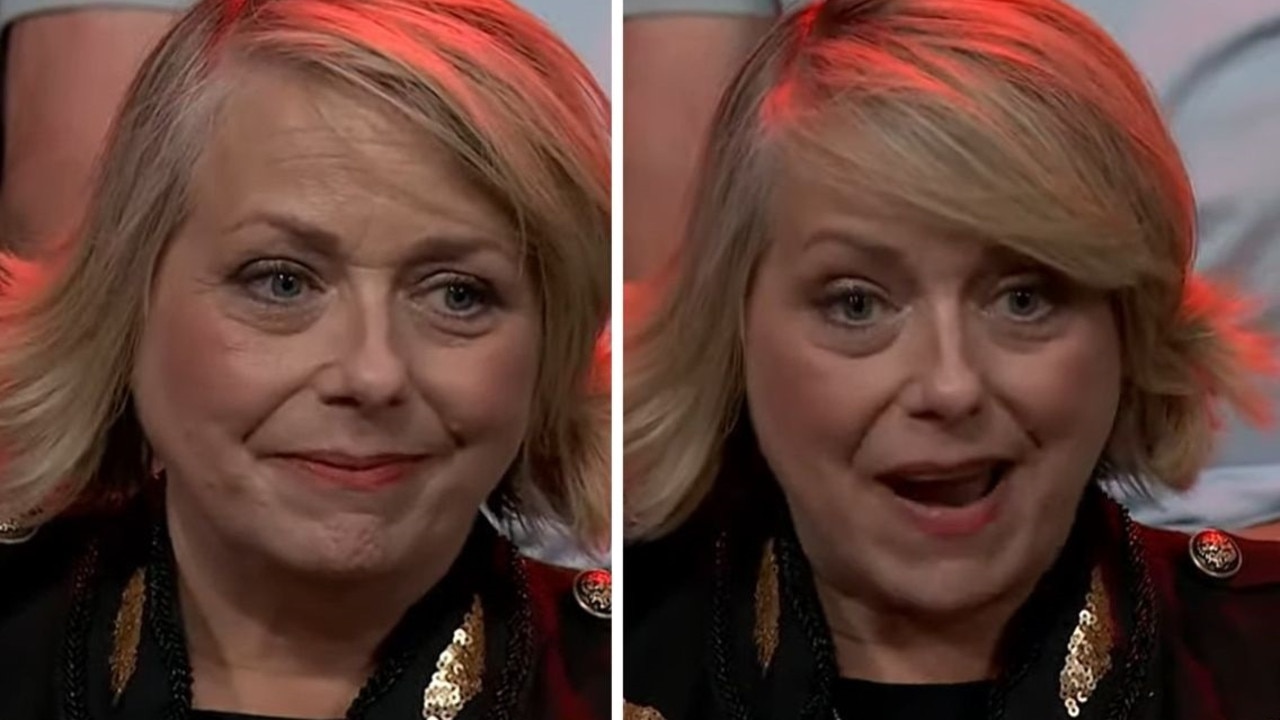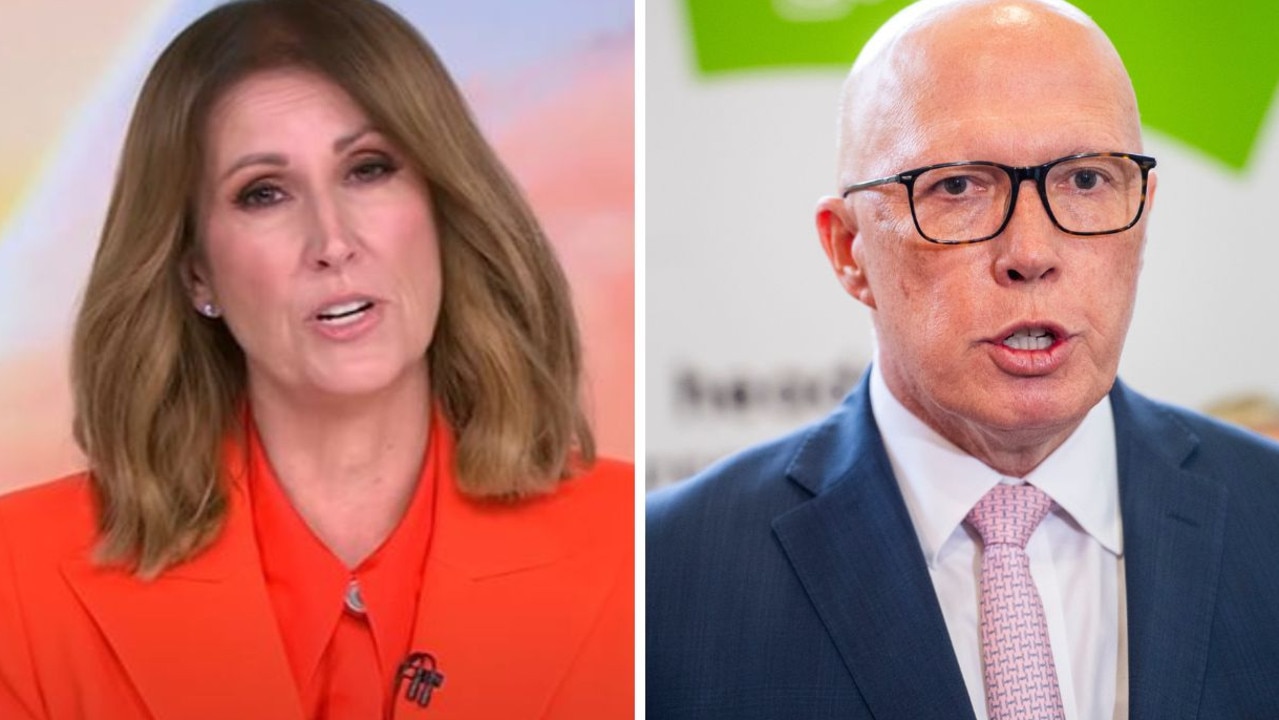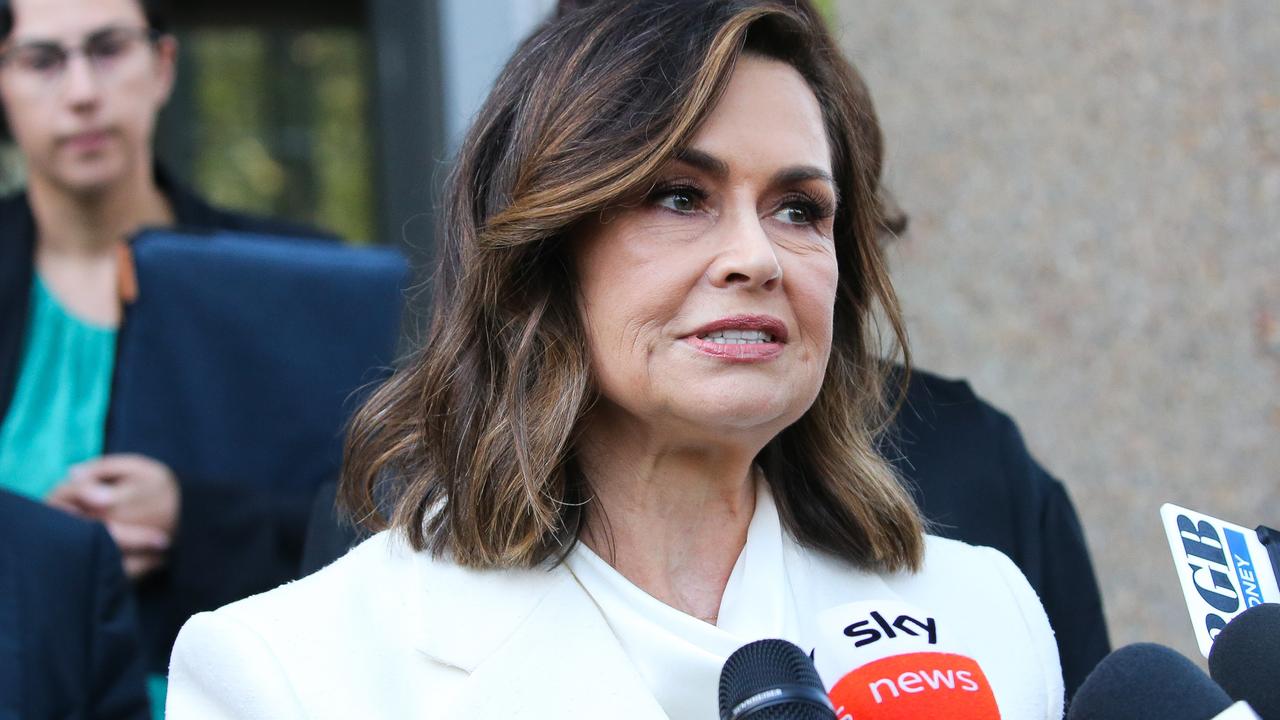ABC reporter says Indigenous communities to rethink whether ‘kindness is the best approach’
An ABC reporter says the Voice result may cause Indigenous communities to rethink how they interact with the rest of Australia.
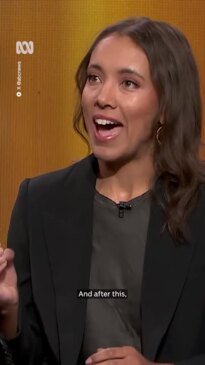
An ABC journalist says the failure of the Voice referendum may cause Indigenous communities to rethink how they interact with the rest of Australia and whether “kindness is the best approach”.
Indigenous leaders may no longer restrain their “black anger”, according to the ABC’s Indigenous Affairs reporter Isabella Higgins, who predicts a rise in “black sovereignty” and a rejection of the “Australian regime”.
Higgins appeared on the ABC’s Insiders panel on Sunday, the morning after the Voice to Parliament referendum was resoundingly defeated.
Asked about the mood among Indigenous Australians at the Yes event in Sydney’s inner-west on Saturday night following the result, Higgins said the community was “resilient” and had “risen from the ashes many times”.
“They said, our communities won’t stop running if this is a No vote,” she said.
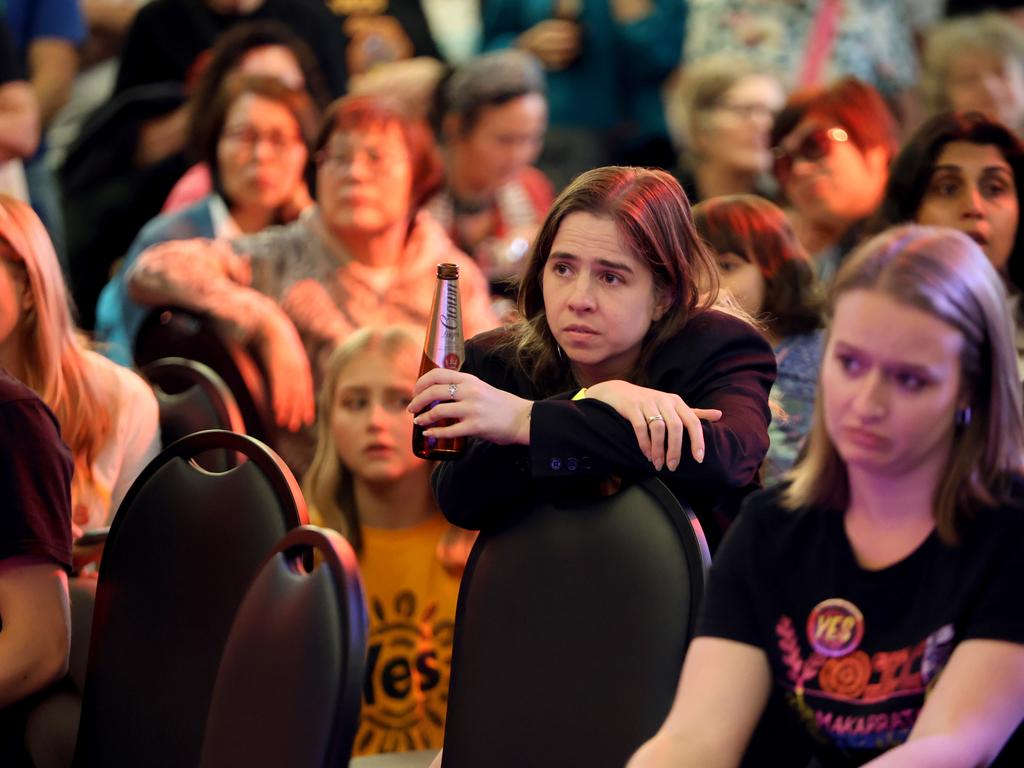
“But I think it’s also been the conventional wisdom in the communities that when we’re talking about reconciliation, we use kind language, we’re generous, we extend the hand of friendship, we invite people in to share our culture, and I think if we look at the campaign messaging around the Voice, it was similar to that.
“So I think this failing, this being rejected, so categorically by all Australians, it will change the way Indigenous Australians want to interact with the rest of the country. It will change whether kindness is the best approach.
“I think often in the community, it is well understood that black anger is not tolerated and so we see leaders pull in their rage, pull in their sadness and constantly use language of generosity, use graciousness to try and appeal to the Australian people. And after, this I think there will be a generation of leaders who have been burnt by this and who won’t be interested in doing that any more.”
Host David Speers asked if the result would “swell the ranks” of the “black sovereign movement” led by independent Senator Lidia Thorpe.
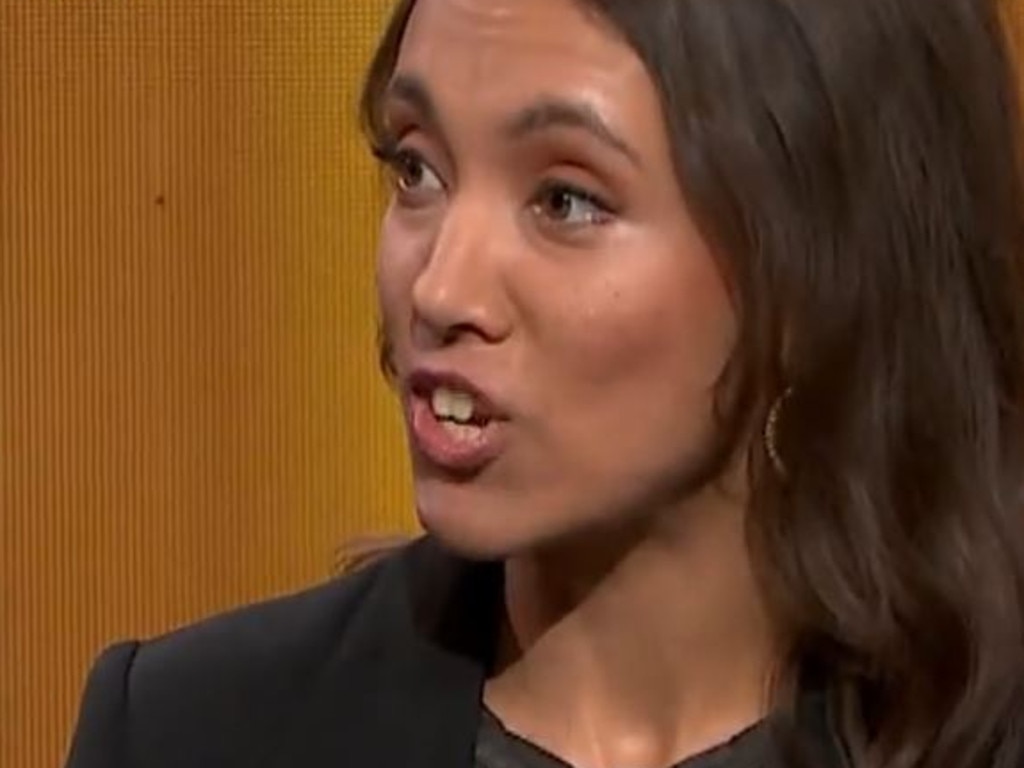
“I would not be surprised if more people pushed towards that message that comes from Lidia Thorpe about not engaging so much with mainstream Australia, not bowing to them, challenging the Australian regime,” she said.
“And of course there will be anger, I think even if you weren’t a card-carrying Yes voter in the Indigenous community, to see the vote, to see Australians reject this so categorically, that’s really hard — to feel, to experience, the whole debate was very uncomfortable. It felt like at times the worth of an Indigenous life was being debated. So I think the message from people like Lidia Thorpe, the message around ‘black sovereignty’, will appeal more after this.”
Asked earlier why she thought Australians voted No, Higgins said she had been surprised by the number of people at the polling booth in final week who still did not understand the proposal.
“We were hearing this from the Yes campaigners, from Anthony Albanese, a week out from this referendum we think 25 per cent of people haven’t decided yet,” she said.
“That’s leaving a lot of truth-telling, a lot of winning over hearts and minds to the final seven days of this campaign. It was a huge job for them and they just couldn’t do it in seven days. It was a difficult proposal, I think, for some people to get their heads around.
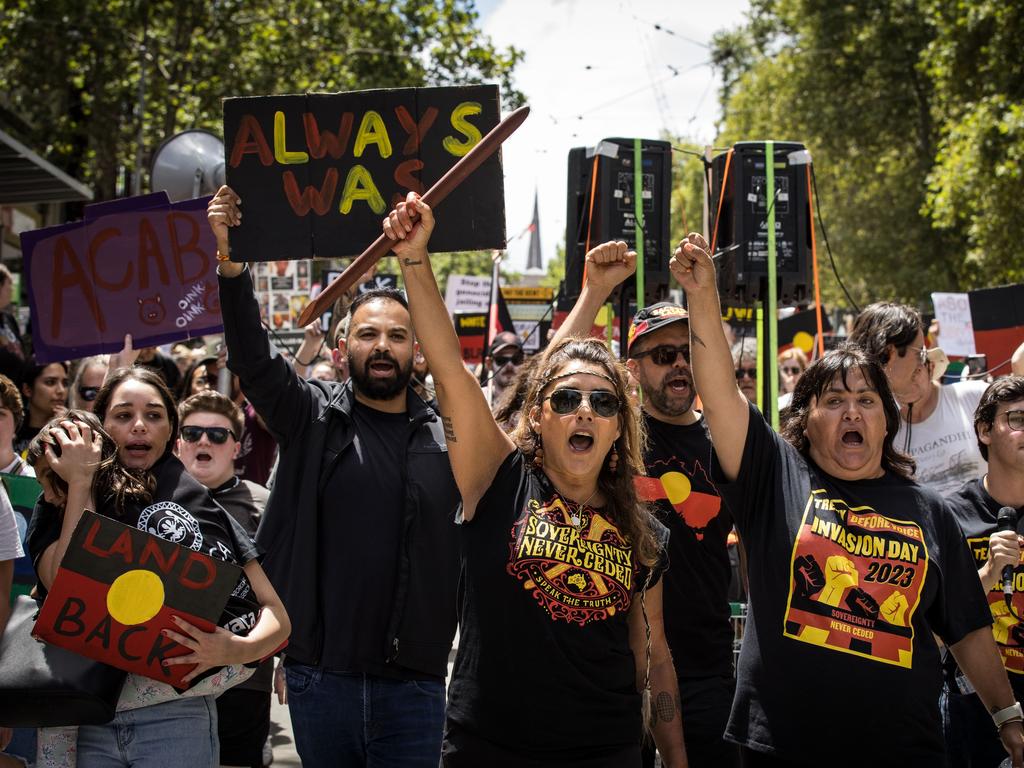
“I think for those who perhaps don’t understand the lives of Indigenous Australians, who don’t understand the inequity, the challenges to then try and understand this proposal and how that could that could potentially fix some of these things, it was too much for them to get their head around and in seven days that just wasn’t going to happen.”
Higgins also agreed with Speers that having Indigenous leaders Jacinta Nampijinpa Price and Nyunggai Warren Mundine front the No campaign helped “confuse a lot of non-Indigenous Australians”.
“I think she was an incredibly potent campaigner,” she said.
“She was a relatively young Indigenous woman out there saying things that we often hear from a very different demographic, saying that colonisation hasn’t negatively impacted Aboriginal people — I mean, that is patently untrue — but to see someone who looks like that from this community saying that, that absolutely confuses the Australian public. It is not true, but because she is saying it, people question it.”
Meanwhile, the ABC’s youth radio station Triple J radio played Yothu Yindi’s protest song Treaty on repeat for an hour on Sunday evening.
The song was played for the duration of rapper Nooky’s all Indigenous music show Blak Out between 5pm and 6pm.
“Last night was the most overt, unconcealed manifestation of racism I’ve ever experienced in my whole life,” he told listeners.
Treaty was first released in 1991 with lyrics that were in response to then Prime Minister Bob Hawke’s broken promise of a treaty between the Australian government and Indigenous Australians.
Nooky said the song was now a call to arms for Indigenous Australians. “We ain’t licking our wounds today, we’re sharpening our spears,” he said.
Indigenous Australians from across the country devastated by Saturday night’s referendum result have called a “week of silence” to grieve the outcome and “reflect on its meaning and significance”.
In addition to a total media blackout, the Yes leaders said they would lower their Aboriginal and Torres Strait Islander flags to half-mast for the week to acknowledge the result, and called for others to do the same.
“Now is not the time to dissect the reasons for this tragic outcome. This will be done in the weeks, years and decades to come,” the group said in a statement. “Now is the time for silence, to mourn and deeply consider the consequence of this outcome.”
After a gruelling six-week campaign, millions of Australians cast their vote in the first referendum since 1999.
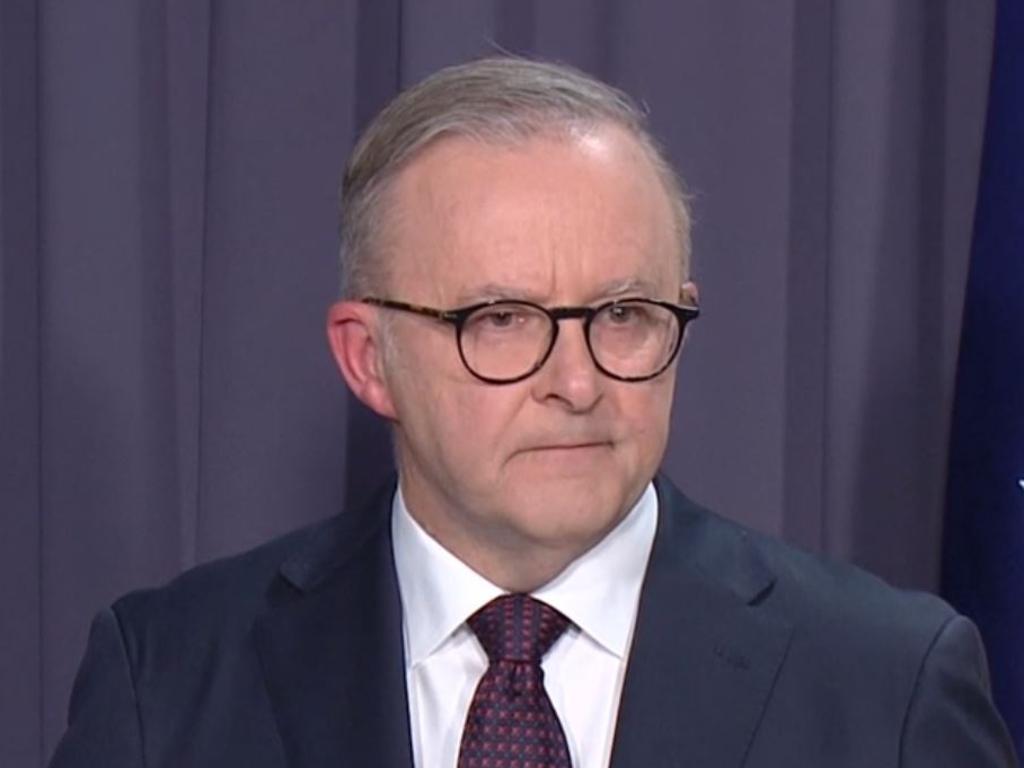
It took less than 90 minutes after the first polls closed on the east coast for election watchers to make the call, after Tasmania, NSW and South Australia voted No — eliminating the path to the required double majority of at least four out of six states.
The proposal, to formally recognise Indigenous Australians in the constitution and to create an advisory body called the Aboriginal and Torres Strait Islander Voice to make representations to the federal government, was also overwhelmingly defeated in the national total with just 39 per cent voting Yes.
A tearful Prime Minister Anthony Albanese told reporters while the result was “not one I had hoped for, I absolutely respect the decision of the Australian people and the democratic process that has delivered it”.
“Our government will continue to seek better outcomes for Indigenous Australians and their children and generations to come,” he said.
Opposition leader Peter Dutton said the result was “good for our country” and that the Coalition wants to see Indigenous disadvantage addressed.
“We just disagree on the Voice being the solution,” he said.




